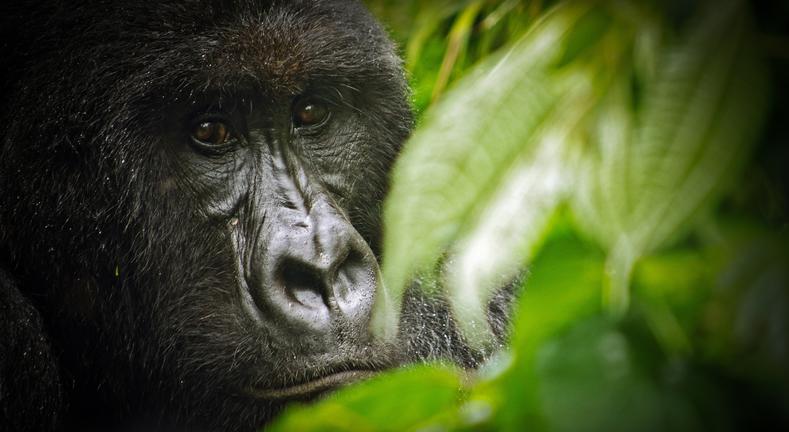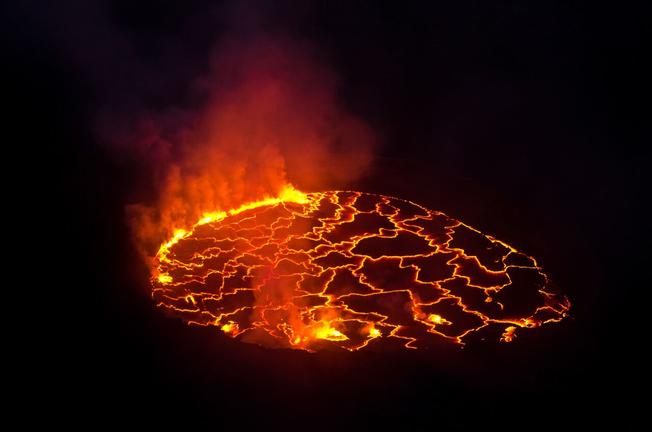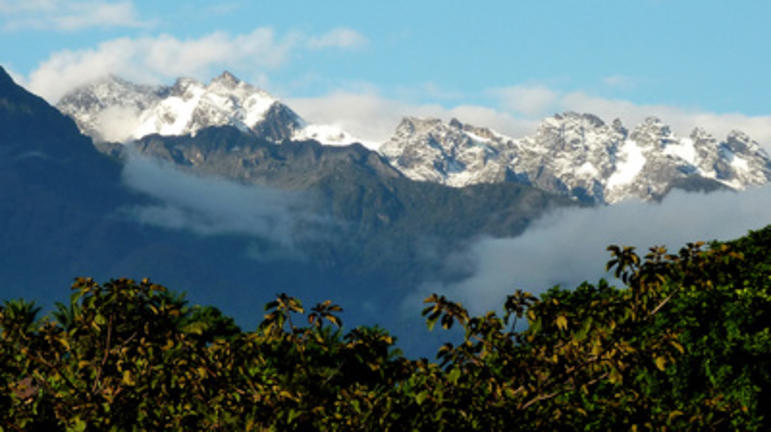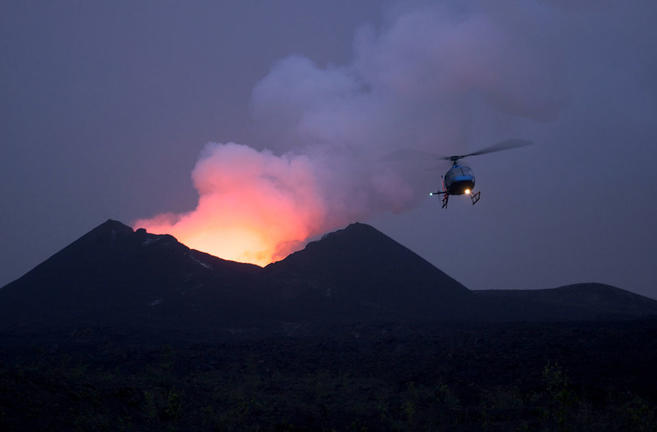The first thing that springs to most people’s minds when thinking of Rwanda is its turbulent political history. But today’s Rwanda is a far cry from the nation it was in the mid-90s: the country has emerged from the shadows and has much to offer visitors, most notably the tracking of endangered mountain gorillas in the lush Virunga National Park, which extends across the peaks and jungle-covered slopes of the volcanic Virunga Mountains. Other major tourist attractions include expansive Lake Kivu, ancient Nyungwe Forest with its rich population of primate species, and the game-rich savannah lands of Akagera National Park.
Quick facts
- Official Name: Republic of Rwanda
- Population: 12,159,586
- Area: 26,338 km2
- Capital City: Kigali (population: 745,261)
- Major Religion: Christianity
- Currency: Rwanda franc (RWF)
- Time Zone: GMT +2
- Country code: + 250
- Altitude: Ranges from 1000-4500m above sea level.
Geography
Known as the 'Land of a Thousand Hills', Rwanda rests just below the equator and its small size has a rich geography with mountains, volcanoes, savannas, and many lakes. Rwanda is a landlocked country in East-Central Africa, surrounded by the Democratic Republic of the Congo, Uganda, Tanzania, and Burundi.
Language
The national language is Kinyarwanda. French, English and Swahili are the other official languages. French is widely spoken throughout the country. In the capital and other tourist areas, many people speak English.
The People
Rwanda is one of the world’s most densely populated countries. Rwandans are drawn from just one cultural and linguistic group, the Banyarwanda, although within this group there are three subgroups: the Hutu (84%), Tutsi (15%) and Twa (1%). The Twa are a forest-dwelling pygmy people descended from Rwanda's earliest inhabitants.
Economy
Rwanda has a presidential system of government. The president is Paul Kagame of the Rwandan Patriotic Front (RPF), who took oath in 2000. Rwanda's economy suffered heavily during the 1994 Rwandan Genocide, but has since strengthened. The economy is based mostly on subsistence agriculture. Coffee and tea are the major cash crops for export. Tourism is a fast-growing sector and is now the country's leading foreign exchange earner.
Rwanda’s capital and biggest city stretches across lush undulating hills surrounded by towering mountains, the largest of which is Mount Kigali, rising 1850 metres above sea level. Kigali is the country’s financial, commercial and cultural hub, served by an international airport and featuring a wide range of accommodation options. It also offers a collection of restaurants and points of interest, including the Kigali Genocide Centre, an atmospheric market and numerous craft shops. With its interesting architecture, busy streets, meandering boulevards, and green hillsides, Kigali is said to be one of the most attractive cities in Africa and is definitely worth a visit.

Long wracked by political strife, the Democratic Republic of the Congo (previously known as Zaire) is slowly beginning to stabilise and welcome tourists across its borders again. Virunga National Park has had more than 5,000 tourists since 2010. It’s an intense country to travel, but those intrepid souls who dare to explore it will be richly rewarded with pristine tropical landscapes, magnificent wildlife and a memorable cultural experience. Congo’s highlights include its exceptional National Parks and Wildlife reserves, five of which are World Heritage Sites. Arguably the premier tourist attractions are the guided treks that offer travellers the chance to experience primates in their natural habitat - including mountain and lowland gorillas, chimpanzees and endemic bonobos.
Virunga National Park is a UNESCO World Heritage Site in the eastern Democratic Republic of Congo, on the border of Uganda and Rwanda. Virunga is Africa’s oldest national park and is also the continent’s most biologically diverse protected area. The park’s 7,800 square kilometers includes forests, savannas, lava plains, swamps, erosion valleys, active volcanoes, and the glaciated peaks of the Rwenzori mountains.
Virunga is home to about a quarter of the world’s critically endangered mountain gorillas. The park’s two other Great Ape species, eastern lowland (Grauer’s) gorillas and chimpanzees, make Virunga the only park in the world to host three taxa of great apes. Another prominent inhabitant of the park is the okapi, an endangered species that resembles a zebra but is more closely related to the giraffe. Large colonies of hippos, forest and savanna elephants, lions, and numerous rare bird species can also be found in the park.
Virunga National Park is comprised of three sectors. The northern sector’s defining feature is the Rwenzori Mountains that border Uganda. At over 5,000 meters, the summits of the Rwenzoris are permanently snow-capped. Snowmelt from the Rwenzoris is one of the primary sources of the Nile River. Okapis can be found living along the Semliki River valley below.
Lake Edward, the Ishasha river valley, and the Rwindi plains are the dominant geographical features that define the park’s central sector. Lake Edward contains over 50 species of fish, as well as numerous bird species. The lake and the adjacent Ishasha river valley are home to the park’s recovering hippo population – once the world’s largest. The park’s highest concentrations of elephant, buffalo, warthogs, and topi are found on the Rwindi plains of the central sector.
Virunga’s southern sector is best known for the mountain gorillas that live on the flanks on the dormant Mikeno volcano. Dense forests cover most of southern Virunga, which also make it ideal habitat for chimpanzees and numerous species of monkey. Another highlight in the south is the active Nyiragongo Volcano, which is home to the largest lava lake in the world.












As previously described












The first thing that springs to most people’s minds when thinking of Rwanda is its turbulent political history. But today’s Rwanda is a far cry from the nation it was in the mid-90s: the country has emerged from the shadows and has much to offer visitors, most notably the tracking of endangered mountain gorillas in the lush Virunga National Park, which extends across the peaks and jungle-covered slopes of the volcanic Virunga Mountains. Other major tourist attractions include expansive Lake Kivu, ancient Nyungwe Forest with its rich population of primate species, and the game-rich savannah lands of Akagera National Park.
Quick facts
- Official Name: Republic of Rwanda
- Population: 12,159,586
- Area: 26,338 km2
- Capital City: Kigali (population: 745,261)
- Major Religion: Christianity
- Currency: Rwanda franc (RWF)
- Time Zone: GMT +2
- Country code: + 250
- Altitude: Ranges from 1000-4500m above sea level.
Geography
Known as the 'Land of a Thousand Hills', Rwanda rests just below the equator and its small size has a rich geography with mountains, volcanoes, savannas, and many lakes. Rwanda is a landlocked country in East-Central Africa, surrounded by the Democratic Republic of the Congo, Uganda, Tanzania, and Burundi.
Language
The national language is Kinyarwanda. French, English and Swahili are the other official languages. French is widely spoken throughout the country. In the capital and other tourist areas, many people speak English.
The People
Rwanda is one of the world’s most densely populated countries. Rwandans are drawn from just one cultural and linguistic group, the Banyarwanda, although within this group there are three subgroups: the Hutu (84%), Tutsi (15%) and Twa (1%). The Twa are a forest-dwelling pygmy people descended from Rwanda's earliest inhabitants.
Economy
Rwanda has a presidential system of government. The president is Paul Kagame of the Rwandan Patriotic Front (RPF), who took oath in 2000. Rwanda's economy suffered heavily during the 1994 Rwandan Genocide, but has since strengthened. The economy is based mostly on subsistence agriculture. Coffee and tea are the major cash crops for export. Tourism is a fast-growing sector and is now the country's leading foreign exchange earner.
As previously described



